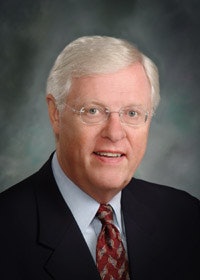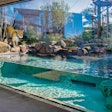
Is it fair to say that business is finally improving?
There seems to be every indication that's true. I've been on the road quite a bit this spring and almost everyone I talk to is saying business is picking up. Even in areas where the industry was hit the hardest people are starting to see glimmers of hope. Certainly the warm weather has been a part of that, but there's also improvement in the overall economy. I don't think anyone is anticipating a rapid or particularly robust recovery, but almost uniformly people are more optimistic than they were in the not too distant past.
Did you see this starting back in 2011, or is this something that's new this year?
It's hard to make a generalization because there are differences in the types of businesses and where they're located. Certainly, many of our members did much better last year, while others continued to struggle. The problem with the lack of financing remains a huge factor holding back some businesses. Overall, last year most people had the feeling that things had bottomed out and were going to start to improve.
Did APSP lose many members during the recession?
No, not at all! Throughout the entire economic downturn our membership remained extremely stable, which has been extremely gratifying. Our industry is largely tied to the overall construction industry and I think we fared better than some of the other construction-related associations. Our renewal rates have continued to run in the 85-90 percent range, and that's good under any condition.
Many people have noted an influx of landscape architects getting into the swimming pool business. Has APSP gained many landscape architect members?
No we haven't. The idea of landscape architects coming into our industry is nothing new. It's been going on for years. Many landscape architects design a pool and hire a pool contractor to build it. What I think is more telling is that many companies in the pool industry have moved toward covering the entire backyard environment and now are building outdoor kitchens and other elements in the landscape. They're broadening their approach because that's what customers are looking for. You see that in our expo, which has consistently moved toward the entire backyard environment.
Do you think our industry should embrace and expand upon that trend?
We've currently retained the services of the Harrison Group, which is a market research firm that has a long track record of taking the pulse of high-end consumers, probably the upper 20 percent, which is a key group for our industry. Based on their current research, they are seeing trends that are strongly favoring our industry.
What they've found is that although no one feels they can control the future in terms of the aggregate, a lot of people feel control of their own sphere of influence and in that sphere many consumers are fairly bullish. Specifically, the cocooning effect has resulted in a greater interest in time with friends and family. They're much more interested in the home environment, and more interested in value. They're more concerned with the quality of what they buy and how it relates to their experience rather than just some sort of conspicuous consumption.
When you translate those mega-trends, it's good news for the pool and hot tub industry because the cocooning effect places a greater interest on the home environment. That's where consumers feel they have control. Within those spheres people are feeling quite good. The Harrison Group is telling us, based on their research, that those are trends are likely to continue for a long time.
People buy pools for a number of reasons. Based on the research, we see that anticipation of the experience of pool ownership registers very, very high with potential buyers. That's very encouraging.
What about the health and fitness benefits associated with swimming — how does that play into the industry's future?
There's certainly ample evidence of those benefits. I'm no expert in this area, but there has been information written repeatedly how swimming is one of, if not the best forms of exercise. When you consider the aging Baby Boomers and how more and more people are becoming health conscious, that's another trend that is very positive for our industry.
One of the things that's exciting for us along these lines is there's a woman named Lyn Sherr, who is a well-known correspondent from ABC; she used to be on 20/20. She's just written a book called "Swim," which is all about the advantages of swimming, the swimming lifestyle and its importance to individuals and society. We're in the process of bringing her on board as an ambassador on swimming. It's part of our effort to promote all of the tremendous benefits of aquatics and owning a pool.
How do you characterize the impact of concerns over safety in terms of promoting the industry?
Safety is always going to be an extremely important issue. In the past few years we've seen concerns over safety increase even further due to Virginia Graeme Baker, people like Congresswoman Debbie Wasserman Shultz and organizations such as the Consumer Products Safety Commission. I see that increased focus as an opportunity to demonstrate that our industry is extremely concerned and active when it comes to creating safe swimming environments.
I doubt that many homeowners will buy a pool because it's safe, but it's an attribute you definitely want to highlight in order to mitigate people's concerns.
Historically, there's been a desire to mandate this or mandate that to reduce risks. I don't believe that safety is something you can mandate because it's not something you really can enforce; after all, there are no police in the backyard. When we talk about layers of protection, fencing, alarms, automatic covers, etc., we have to realize the only things that are going to work are those measures the homeowners themselves actually use. We've partnered with the CPSC in their pool safety campaign to let people know they have different options available to them. The key is that they use the measures they've chosen.
And, of course, adult supervision is always the No. 1 safety measure.
Do you see opportunities for strategic alliances with other industries or associations?
Those opportunities always exist, but at this point I think that's a game of inches. Let's face it, the pool and spa industry has taken a major hit and right now we need to focus on the current recovery. In the long term, there are all sorts of possibilities, but they're probably not our primary focus right now.
What's your take on the state of financing as it relates to pool and spa sales?
That remains a huge concern. We still see a lack of direct financing, and second financing based on home equity is an issue so long as real estate values are down. Banks have just generally been very tough minded about lending and that's probably the biggest thing that's currently holding us back. It's a problem.
When we talk about people feeling optimistic, that's often due to the fact that they're encountering pent-up demand in their various markets. The lack of financing constrains the ability to tap into that demand. That said, I do think it's easing up a bit. We do see active advertising on the part of some lenders. I know some companies have been successful establishing relationships with local lenders. But there's no escaping the fact that the housing market has constrained lending. To the extent that starts to open up, we'll start to see the recovery accelerate.
What was behind the decision to move the expo to New Orleans this year after so many years in Las Vegas?
I think fatigue. Las Vegas is always a great draw, but after being there so many consecutive years, a change of venue is good for the soul. From what I understand from colleagues in other associations who've been back to New Orleans, the city is doing a great job of supporting convention business and in general they've experienced a strong recovery following Katrina. I think Hanley-Wood made a really good choice.
Do you think this is an era that can be characterized by the term resilience?
Yes. It's all part of what's happening across the board. We're seeing the jobs market improve, the travel industry is up and certainly we've seen improvements with the automobile industry — there are all sorts of signs of rebounding. It's a matter of degree and not uniform, but on balance, we are recovering, more so beyond many people's expectations. Consumer confidence is rising and across the board things are very positive for the pool and spa industry.
Parting shot?
Our industry has a great story. We're not selling products so much as we're selling great stories and experience. When people think about owning a pool or a hut tub, they're excited. That's what we need to be aware of and what we need to respond to.











































